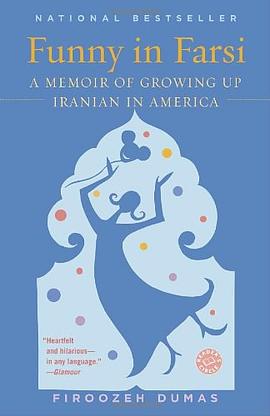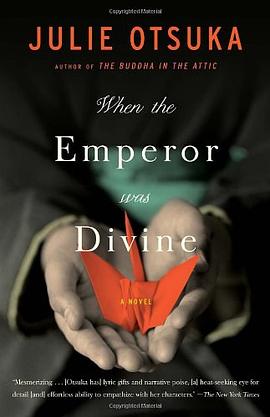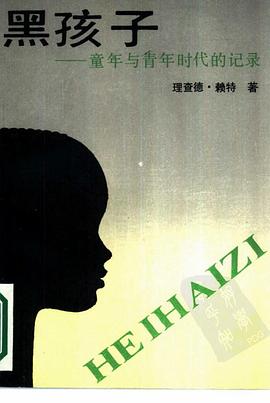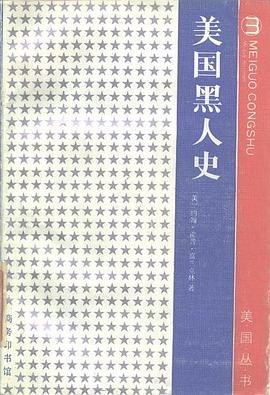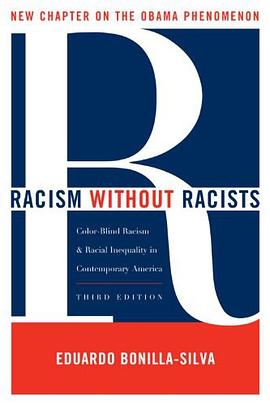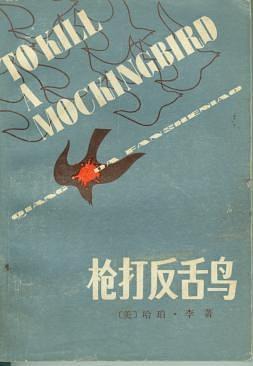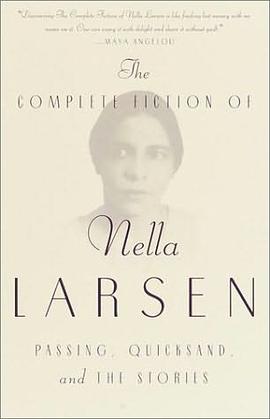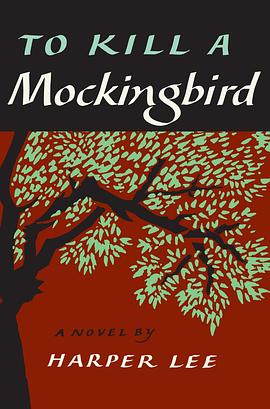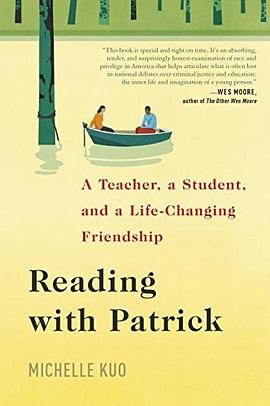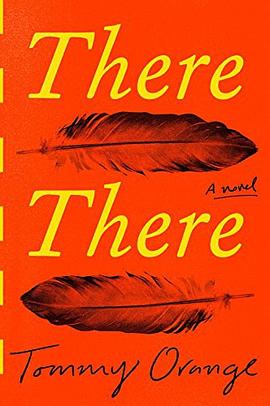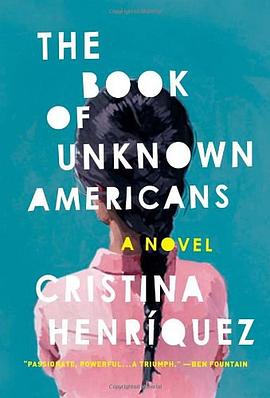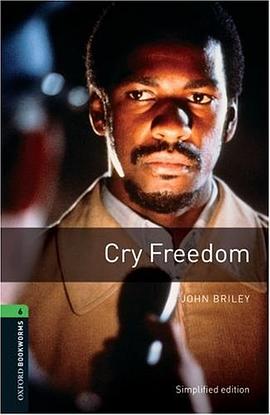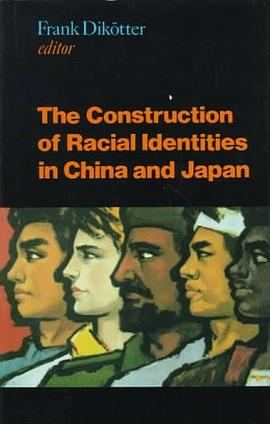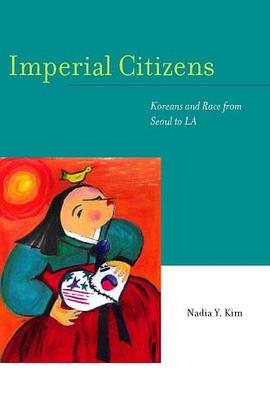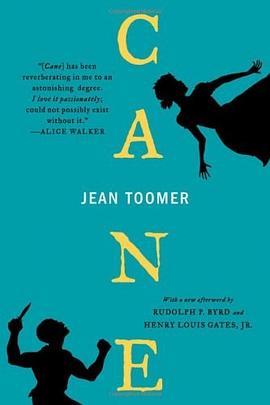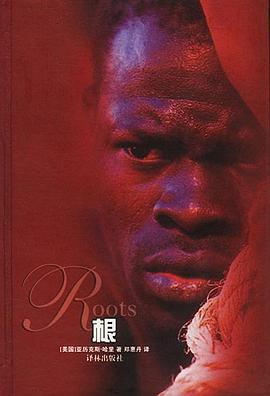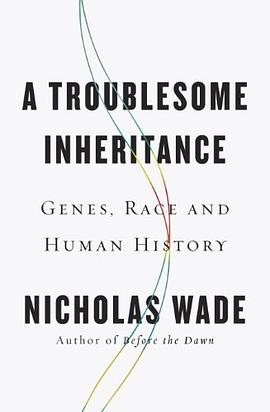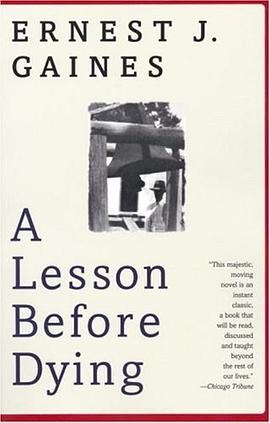

具体描述
在线阅读本书
Book Description
From the author of A Gathering of Old Men and The Autobiography of Miss Jane Pittman comes a deep and compassionate novel.
A Lesson Before Dying is set in a small Cajun community in the late 1940s. Jefferson, a young black man, is unwitting party to a liquor store shootout in which three men are killed; the only survivor, he is convicted of murder and sentenced to death. Grant Wiggins, who left his hometown for the university, has returned to the plantation school to teach. As he struggles with his decision whether to stay or escape to another state, his aunt and Jefferson's godmother persuade him to visit Jefferson in his cell and impart his learning and his pride to Jefferson before his death. In the end, the two men forge a bond as they both come to understand the simple heroism of resisting — and defying — the expected.
Ernest J. Gaines brings to this novel the same rich sense of place, the same deep understanding of the human psyche, and the same compassion for a people and their struggle that have informed his previous, highly praised works of fiction.
A Lesson Before Dying is about the ways in which people insist on declaring the value of their lives in a time and place in which those lives count for nothing. It is about the ways in which the imprisoned may find freedom even in the moment of their death. As such, Gaines's novel transcends its minutely evoked circumstances to address the basic predicament of what it is to be a human being, a creature striving for dignity in a universe that often denies it.
Amazon.com
In a small Cajun community in 1940s Louisiana, a young black man is about to go to the electric chair for murder. A white shopkeeper had died during a robbery gone bad; though the young man on trial had not been armed and had not pulled the trigger, in that time and place, there could be no doubt of the verdict or the penalty.
"I was not there, yet I was there. No, I did not go to the trial, I did not hear the verdict, because I knew all the time what it would be..." So begins Grant Wiggins, the narrator of Ernest J. Gaines's powerful exploration of race, injustice, and resistance, A Lesson Before Dying. If young Jefferson, the accused, is confined by the law to an iron-barred cell, Grant Wiggins is no less a prisoner of social convention. University educated, Grant has returned to the tiny plantation town of his youth, where the only job available to him is teaching in the small plantation church school. More than 75 years after the close of the Civil War, antebellum attitudes still prevail: African Americans go to the kitchen door when visiting whites and the two races are rigidly separated by custom and by law. Grant, trapped in a career he doesn't enjoy, eaten up by resentment at his station in life, and angered by the injustice he sees all around him, dreams of taking his girlfriend Vivian and leaving Louisiana forever. But when Jefferson is convicted and sentenced to die, his grandmother, Miss Emma, begs Grant for one last favor: to teach her grandson to die like a man.
As Grant struggles to impart a sense of pride to Jefferson before he must face his death, he learns an important lesson as well: heroism is not always expressed through action--sometimes the simple act of resisting the inevitable is enough. Populated by strong, unforgettable characters, Ernest J. Gaines's A Lesson Before Dying offers a lesson for a lifetime.
From Kirkus Reviews
Two black men (one a teacher, the other a death row inmate) struggle to live, and die, with dignity, in Gaines's most powerful and moving work since The Autobiography of Miss Jane Pittman (1971). The year is 1948. Harry Truman may have integrated the Armed Forces, but down in the small Cajun town of Bayonne, Louisiana, where the blacks still shuffle submissively for their white masters, little has changed since slavery. When a white liquor- store owner is killed during a robbery attempt, along with his two black assailants, the innocent black bystander Jefferson gets death, despite the defense plea that I would just as soon put a hog in the electric chair as this.'' Hog. The word lingers like a foul odor and weighs as heavily as the sentence on Jefferson and the woman who raised him, his nannan'' (godmother) Miss Emma. She needs an image of Jefferson going to his death like a man, and she turns to the young teacher at the plantation school for help. Meanwhile, Grant Wiggins (the narrator) has his own problems. He loves his people but hates himself for teaching on the white man's terms; visiting Jefferson in jail will just mean more kowtowing, so he goes along reluctantly, prodded by his strong-willed Tante Lou and his girlfriend Vivian. The first visits are a disaster: Jefferson refuses to speak and will not eat his nannan's cooking, which breaks the old lady's heart. But eventually Grant gets through to him (a hero does for others''); Jefferson eats Miss Emma's gumbo and astonishes himself by writing whole pages in a diary--a miracle, water from the rock. When he walks to the chair, he is the strongest man in the courthouse. By containing unbearably painful emotions within simple declarative sentences and everyday speech rhythms, Gaines has written a novel that is not only never maudlin, but approaches the spare beauty of a classic.
From School Library Journal/i>
No breathless courtroom triumphs or dramatic reprieves alleviate the sad progress toward execution in this latest novel by the author of The Autobiography of Miss Jane Pittman (Bantam, 1982). The condemned man is Jefferson, a poorly educated man/child whose only crimes are a dim intelligence, being in the wrong place at the wrong time, and being black in rural Louisiana in the late 1940s. To everyone, even his own defense attorney, he's an animal, too dumb to understand what is happening to him. But his godmother, Miss Emma, decides that Jefferson will die a man. To accomplish just that, she brings Grant Wiggins, the teacher at the plantation's one-room school and narrator of the novel, into the story. Emotionally blackmailed by two strong-willed old ladies, Grant reluctantly begins visiting Jefferson, committing both men to the painful task of self-discovery. As in his earlier novels, Gaines evokes a sense of reality through rich detail and believable characters in this simple, moving story. YAs who seek thought-provoking reading will enjoy this glimpse of life in the rural South just before the civil rights movement.
- Carolyn E. Gecan, Thomas Jefferson Sci-Tech, Fairfax County, VA
Midwest Book Review
Set in a small Cajun community in the late 1940's, A Lesson Before Dying is the heartbreaking and inspiring new audio about the friendship to two black men. One wrongly condemned to die and one who's persuaded to impart something of himself -- his learning and pride. Jefferson is an unwitting and innocent party to a liquor store shoot-out in which three men are killed; the only survivor, hi is convicted of murder and sentenced to death. Grant Wiggins, who left his hometown for the university has reluctantly returned to the plantation school to teach. As he struggles with his decision whether to stay or escape to another state, his aunt and Jefferson's godmother persuade him to visit Jefferson in his cell. In the end, the two men forge a bond as they both come to understand the simple heroism of resisting (and defying) the expected. Superb narration by Lionel Mark Smith and Toger Guenveur Smith.
From Library Journal
What do you tell an innocent youth who was at the wrong place at the wrong time and now faces death in the electric chair? What do you say to restore his self-esteem when his lawyer has publicly described him as a dumb animal? What do you tell a youth humiliated by a lifetime of racism so that he can face death with dignity? The task belongs to Grant Wiggins, the teacher of the Negro plantation school who narrates the story. Grant grew up on the Louisiana plantation but broke away to go to the university. He returns to help his people but struggles over "whether I should act like the teacher that I was, or like the nigger that I was supposed to be." The powerful message Grant tells the youth transforms him from a "hog" to a hero, and the reader is not likely to forget it, either. Gaines's earlier works include A Gathering of Old Men ( LJ 9/83) and The Autobiography of Miss Jane Pittman (Bantam, 1982). BOMC and Quality Paperback Book Club alternate selections; previewed in Prepub Alert, LJ 12/92.
- Joanne Snapp, Randolph-Macon Coll. , Ashland, Va.
From AudioFile
In the segregated rural Louisiana of the 1940's a retarded African-American youth is wrongly convicted of murder. Another African-American, a teacher, is persuaded to visit the condemned man in his cell and convince him that he "ain't no hawg." The relationship that grows between them and its effect on the teacher's worldview are the heart of this bittersweet, humane novel by the author of The Autobiography of Miss Jane Pittman. The audio abridgment isn't particularly well-produced or narrated, yet--whether because of the strong writing, the fascinating Creole milieu, the subtle quality of the acting or another elusive quality--it's somehow riveting. Well worth the listen! Y.R.
About Author
Born in Philadelphia in 1931, Romulus Linney has written more than twenty-five plays including The Sorrows of Frederick, Holy Ghosts, Childe Byron, A Woman Without a Name, Sand Mountain. He has also written for film and television, including the teleplays The Thirty-Fourth Star fro CBS, Feeling Good for PBS, and a film version of his play Holy Ghosts. He received the National Critics Award for his play 2, and for his adaptation for his 1962 novel Heathen Valley, several Obie Awards, Mishima Prize of Fiction, and many more.
Book Dimension :
length: (cm)21 width:(cm)13.3
作者简介
恩尼斯特•盖恩斯(Ernest J. Gaines)
当代美国黑人作家。他在40余年的创作生涯里,先后有8部作品问世,美国评论家埃尔文•奥伯特认为盖恩斯对美国南方社会的理解甚至比福克纳还深刻。他的作品被译为多种语言。其中有4部作品改编为电影、电视连续剧。盖恩斯的其他作品还包括《老人的聚会》、《珍•彼特曼小姐自传》、《爱与尘》等。
《我的灵魂永不下跪》是盖恩斯最受读者推崇的作品,不仅在销售上获得肯定,更荣获1993年美国国家书评小说奖首奖等诸多奖项,改编HBO电影《死亡记事》,抱得两座艾美奖。盖恩斯获奖无数,曾获得诺贝尔文学奖提名,由法国政府授封为艺术与文学骑士,荣膺路州年度人文学者。
目录信息
读后感
□木木勺 当朋友发现我捧着这本小说看得津津有味的时候,她问我,是一本什么样的书呢。我说是一本小说,讲了一个无辜的黑人被判了死刑。她又问,后来呢,我说后来人们就想帮他。大概是因为我的介绍太简短无趣了,她哦了一声走开了。当我读完了这本小说,我反而更担心她会又问...
评分初以为《我的灵魂永不下跪》是伍子胥的“必树吾墓上以梓,令可以为器;而抉吾眼县吴东门之上,以观越寇之入灭吴也”以身作誓的傲尊,结果却是一个包裹黑与白的颜色,欲加之罪莫辩的心酸故事。生命和灵魂,从那普通的躯体抽出,释放出一种悲剧英雄主义的意蕴。作者恩尼斯特•...
评分谈起路易斯安那州,令我印象深刻的是5年前那场反种族歧视大游行,杰纳镇黑人和白人学生争执的起因只是一棵被称为“白人树”的橡树,3名白人学生得知黑人学生希望能坐在“白人树”下乘凉后,在树上挂上了象征美国南部白人奴隶主残害黑人的绞刑套圈,这引起了黑人学生的强烈不满...
评分被突发事件一打岔,这本书的读后感差点就不了了之了。 最近泪点有些低,最后一页竟然看哭了。 纵然作者在主线故事上做足铺垫,但仍然觉得杰夫逊从自暴自弃到大义凛然的转变实在过于生硬和牵强。封底的媒体评论总结,水分太大。 两位老太太强迫杰夫逊在临死前忘记不公和恐惧,强...
评分一个普通人如何证明自己的尊严或如何证明自己有尊严地活着,是每个人都值得思考的问题。在这部小书中,作者展示了一个黑人教师寻找自我价值的心路历程。 小说的主人公,对自我的评价并不是很高,他虽然心怀不干但也只是想平平常常地教书,平平静静地过活,但一个人不可能独自...
用户评价
这本书,就像是一颗在黑暗中闪烁的星辰,它指引着我前行的方向,也温暖着我疲惫的心灵。作者的文字,如同一股清泉,涤荡着我内心的尘埃,让我看到了久违的纯净。我喜欢书中人物的成长轨迹,他们从迷茫走向坚定,从绝望走向希望。他们的故事,不仅仅是个人命运的写照,更是那个时代背景下,无数个体命运的缩影。我曾为他们的困境而揪心,也为他们的突破而欢呼。这本书,让我开始思考“自由”的真正含义,它不仅仅是身体的解放,更是灵魂的自由。它让我明白,即使被束缚,我们依然可以拥有内心的自由,依然可以活出自己的风采。这种力量,如此强大,又如此宁静,它让我感受到了生命的重量,也感受到了生命的希望。
评分这本书给我的感觉,就像是漫步在一个夏日的午后,阳光透过枝叶斑驳地洒在身上,空气中弥漫着淡淡的青草和泥土的芬芳。我迫不及待地想要翻开它的扉页,寻找那些潜藏在文字深处的秘密,就像一个好奇的孩子,总想知道故事的结局,又害怕美好的事物悄然流逝。读这本书,与其说是阅读,不如说是一种沉浸式的体验,我仿佛置身于那个时代,感受着那些人物的呼吸、心跳,甚至连他们沉默时的那种沉重都仿佛能被我捕捉到。每一个词语,每一个句子,都像是一块精心雕琢的宝石,闪烁着独特的光芒,将我引向一个又一个意想不到的角落。我反复品味着作者的遣词造句,那些看似平淡的描述,实则蕴含着深沉的情感和深刻的洞察。我喜欢那种慢慢展开的叙事节奏,它不像那些急于抛出高潮的快餐文学,而是像一幅徐徐展开的山水画,需要你静下心来,细细品味其中的每一笔勾勒,每一抹晕染。当我合上书页,那些人物的形象依然鲜活地在我脑海中闪烁,他们的喜怒哀乐,他们的挣扎与抉择,都化作了我内心深处的一部分,久久不能平静。这本书,真的让我从心底里感受到了一种前所未有的震撼,它不仅仅是一个故事,更是一种关于生命、关于人性、关于救赎的深刻思考,我仿佛在其中找到了某种共鸣,某种对生命意义的全新理解,它让我重新审视了自己,也重新审视了这个世界。
评分当我合上这本书的最后一页,我的内心久久不能平静。它像是一场漫长而深刻的梦境,让我沉醉其中,又让我心潮澎湃。作者的笔触,如同雕刻家手中的刻刀,将人物的灵魂一点点地雕琢出来,让他们栩栩如生,跃然纸上。我仿佛能听到他们内心的低语,感受到他们指尖的温度。我喜欢书中那种缓慢而坚定的叙事节奏,它像是在为我铺设一条通往深处的道路,让我一步步地探索着故事的真相,也探索着人性的奥秘。我曾为人物的遭遇而扼腕叹息,也曾为他们的成长而欣慰不已。这本书,让我重新审视了“救赎”这个词的含义,它不仅仅是对罪恶的惩罚,更是对灵魂的升华。它让我明白,即使在最绝望的境遇中,我们依然可以找到属于自己的尊严,依然可以活出生命的意义。这种力量,如此强大,又如此温柔,它让我看到了希望,也让我看到了人性的光辉。
评分这本书的魅力,在于它能够触及我内心最柔软的部分。我并非一个容易被感动的人,但这本书却让我一次又一次地湿了眼眶。作者的文字,就像一把钝刀子,一点点地割开我内心的壁垒,让我看到了隐藏在深处的脆弱与渴望。我喜欢书中对人物情感的细致描摹,那些微妙的变化,那些欲言又止的瞬间,都被作者捕捉得恰到好处。我仿佛能感受到人物内心的挣扎,感受到他们对爱的渴求。这本书,让我开始反思自己的生活,反思我与身边人的关系。它让我明白,即使是微不足道的善意,也能在黑暗中点亮一盏灯,照亮前行的道路。它也让我更加理解了“尊重”这个词的深意,尊重每一个生命,尊重每一个选择,即使我们无法理解。这本书,给我带来了太多的思考,也带来了太多的温暖,它让我感受到了生命的脆弱,也感受到了生命的坚韧。
评分这本书的阅读体验,如同品味一杯陈年的佳酿,初入口时或许有些微涩,但细细回味,却能感受到其醇厚的甘甜。我喜欢作者的叙事方式,它并不刻意追求戏剧性的冲突,而是通过缓慢而深刻的铺陈,将人物的内心世界一点点地展现出来。我被书中人物的坚韧所打动,他们在逆境中展现出的勇气,让我看到了人性的光辉。我喜欢他们之间的互动,那些看似平淡的对话,却蕴含着深厚的情感。这本书,让我开始思考“救赎”的真正意义,它不仅仅是对错误的弥补,更是对生命的重新定义。它让我明白,即使在最艰难的时刻,我们依然可以找到属于自己的价值,依然可以活出生命的尊严。这种力量,如此平凡,又如此伟大,它让我感受到了生命的力量,也感受到了生命的美好。
评分这本书给我带来的,不仅仅是阅读的享受,更是一种心灵的震撼。我喜欢作者的叙事风格,它既有史诗般的宏伟,又不失细腻的情感。书中的人物,不是简单的符号,而是有血有肉、有情有性的鲜活个体。我被他们的命运所牵引,被他们的选择所触动。我喜欢他们在困境中的坚韧,他们在绝望中的呐喊,他们在迷茫中的追寻。每一次翻页,都像是在揭开一层神秘的面纱,让我对故事的走向充满了期待。我尤其欣赏作者在细节上的把握,那些看似不经意的描写,却能精准地触动我的内心,引发我深刻的思考。我会在某个瞬间停下阅读,久久地凝视着屏幕,回味着刚才读到的句子,试图从中挖掘出更深层次的含义。这本书,让我明白,即使是在最黑暗的时刻,希望的火苗也从未熄灭,只要我们坚持不懈,总能找到走出困境的出路。它也让我更加理解了人性的复杂性,那些善与恶、爱与恨、光明与黑暗的交织,构成了我们丰富多彩的人生。
评分这本书像一束穿透迷雾的阳光,照亮了我内心深处那些曾经晦暗不明的角落。我并非一开始就完全沉浸其中,但随着故事的推进,我逐渐被一种难以言喻的魅力所吸引。作者的笔触非常细腻,仿佛能够洞察人心最隐秘的角落,将那些复杂的情感和矛盾的心绪描绘得淋漓尽致。我尤其欣赏书中对人物心理的刻画,那些细微的表情变化,那些欲言又止的沉默,都被作者捕捉得恰到好处,让我仿佛亲眼目睹了人物内心的波澜起伏。有时候,我会在某个瞬间感到一阵强烈的共鸣,仿佛书中人物的经历就是我曾经的写照,那种孤独、那种迷茫、那种对未来的不确定感,都如此真实地呈现在我眼前。阅读这本书,就像在和一群老朋友进行一次深刻的对话,他们分享着自己的故事,也倾听着我的心声。这本书也让我开始思考,在我们看似平凡的生活中,其实隐藏着无数深刻的意义,只是我们常常因为忙碌而忽略了它们。它教会了我更加珍视当下,更加关注那些被我们忽视的角落,更加理解那些在沉默中承受着重担的人们。这本书给我带来的不仅仅是阅读的乐趣,更是一种精神上的洗礼,它让我对生命有了更深层次的理解,也让我更加坚定了自己的人生信念。
评分这本书给我的感觉,就像是走进了一个充满古老智慧的图书馆,每一页都散发着淡淡的书香,也充满了未知的探索。我并非一开始就完全投入,但随着故事的深入,我逐渐被作者构建的世界深深吸引。那些细腻的笔触,那些生动的人物,都让我仿佛置身其中,与他们一同经历着喜怒哀乐。我尤其欣赏书中对人物内心世界的刻画,那些微妙的情感变化,那些难以言说的挣扎,都被作者捕捉得恰到好处,让我感同身受。有时候,我会在某个瞬间感到一阵强烈的震撼,仿佛书中人物的命运就是我曾经的写照,那种孤独、那种迷茫、那种对未来的不确定感,都如此真实地呈现在我眼前。这本书,让我开始重新审视自己,也重新审视了这个世界。它教会了我更加珍视当下,更加关注那些被我们忽视的角落,更加理解那些在沉默中承受着重担的人们。这本书,不仅仅是一个故事,更是一种精神的洗礼,它让我对生命有了更深层次的理解,也让我更加坚定了自己的人生信念。
评分这本书的开篇,就像是一声悠扬的号角,预示着一段史诗般的旅程即将展开。我被作者构建的那个世界深深吸引,它既有历史的厚重感,又不乏现代的张力。书中人物的塑造更是别具匠心,他们不是脸谱化的符号,而是有血有肉、有情有义的鲜活个体。我喜欢他们在困境中的挣扎,他们在绝望中的呐喊,他们在迷茫中的追寻。每一次翻页,都像是在揭开一层神秘的面纱,让我对故事的走向充满了期待。我尤其欣赏作者在细节上的把握,那些看似不经意的描写,却能精准地触动我的内心,引发我深刻的思考。我会在某个瞬间停下阅读,久久地凝视着屏幕,回味着刚才读到的句子,试图从中挖掘出更深层次的含义。这本书让我明白,即使是在最黑暗的时刻,希望的火苗也从未熄灭,只要我们坚持不懈,总能找到走出困境的出路。它也让我更加理解了人性的复杂性,那些善与恶、爱与恨、光明与黑暗的交织,构成了我们丰富多彩的人生。这本书,不仅仅是一个故事,更是一种精神的启迪,它让我对生活有了更深刻的认识,也让我对未来充满了无限的憧憬。
评分这本书的叙事方式,就像是一条蜿蜒的小溪,它没有惊涛骇浪的壮阔,却有着潺潺流水的悠远。我沉浸在作者细腻的笔触中,感受着每一个词语的温度,每一个句子的力量。我喜欢这种不疾不徐的节奏,它让我有足够的时间去品味故事中的每一个细节,去理解每一个人物的内心世界。书中的人物,不是高高在上的英雄,也不是罪恶滔天的反派,他们是平凡的个体,有着自己的喜怒哀乐,有着自己的挣扎与选择。他们的故事,就像一面面镜子,照出了我内心深处的某些部分,让我对人性有了更深刻的理解。我常常会在阅读过程中停下来,思考书中人物的处境,思考他们所做的决定。这种思考,不仅仅是对故事的理解,更是对自身的一种审视。这本书,让我明白,即使是在最艰难的时刻,我们依然可以选择善良,可以选择坚持,可以选择希望。它也让我更加珍惜生命中的每一个瞬间,更加感激那些出现在我们生命中的人。
评分七分比较合适,没这个选项,只能四颗星了。不太能从文学性或故事性的角度来判断这本书,最初了解是通过辛普森案的辩护词之一。肤色是原罪,本书中将死之人的辩护律师说不能以人的标准来要求Jefferson,因为他是hog,这是贯穿全书的词。老师和牧师分别被委托,给J在死前上一课,让J有尊严的死去。故事就是这样展开的,第一人称的是老师,他不太相信能救赎谁,然而最后他才是被救赎的那一个。
评分终于在Darren和众同学的两个月相陪伴下读完了。要不一开始我一定弃书,到后面才比较精彩。
评分全文好多废话,拖得很长,虽然主题很好,但是个人认为电影拍得更好一点
评分看到结尾有点感动. “Tell Nannan I Walked.” 还有Paul和Grant最后跨越肤色的friend好不容易.. 赞一个.
评分看Jefferson's diary 想吐血,本来英文水平不够就不够了,还来章这样的Orz
相关图书
本站所有内容均为互联网搜索引擎提供的公开搜索信息,本站不存储任何数据与内容,任何内容与数据均与本站无关,如有需要请联系相关搜索引擎包括但不限于百度,google,bing,sogou 等
© 2026 onlinetoolsland.com All Rights Reserved. 本本书屋 版权所有

